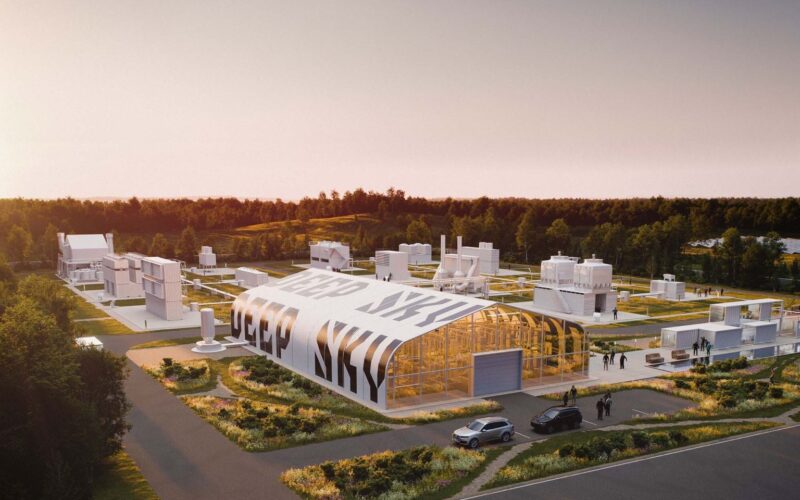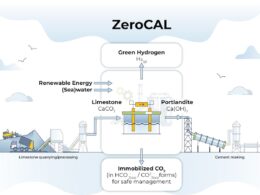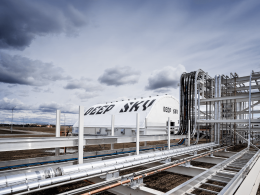Deep Sky, a Canadian carbon removal project developer will build the world’s first carbon removal innovation and commercialisation centre, Deep Sky Labs at Innisfail, Alberta. Deep Sky Labs aims to fast-track the development of low-cost, low-energy, and highly scalable carbon dioxide removal (CDR) technologies to generate high-integrity carbon credits. This project is the first private development of scalable CDR, the world’s first cross-technology project, and the first commercial direct air capture (DAC) facility in Canada.
The Deep Sky Labs facility will be situated on a 5-acre plot within a municipality-owned industrial park at 6015 35th Street, adjacent to other green projects such as a solar farm and a waste-to-energy plant. Engineering and design have been carried out in collaboration with leading firm BBA, with construction set to commence soon. The facility is expected to be operational this winter, with a capacity to capture 3,000 tons of CO2 annually, totaling 30,000 tons over a decade, using up to 10 different technologies. There will also be space for future expansion.
The Labs will enable simultaneous testing of various Direct Air Capture (DAC) concepts. Its tech-agnostic approach reduces delivery and operational risks while accelerating industry scaling. This will address the delivery delays that have affected previous global carbon removal projects. Initially, eight advanced DAC technologies will be installed at the facility, each using standardised instrumentation for collecting operational data. These technologies will be tested and optimised year-round in the Canadian climate and validated before commercial deployment. Deep Sky’s proprietary software will track and benchmark all operational data, driving the R&D of technology partners and the broader industry—an industry first.
The eight DAC technologies will benefit from renewable power and carbon storage, facilitating life cycle analyses to produce verified carbon removal credits validated by third-party carbon registries. The participating DAC providers include Airhive, Avnos, Phlair (formerly Carbon Atlantis), Greenlyte Carbon Technologies, Mission Zero, NEG8 Carbon, Skyrenu, and Skytree.
Damien Steel, Deep Sky CEO said, “I cannot overstate the significance of the world’s first carbon removal innovation and commercialisation centre, and what this means for Canada and our planet at large. This project represents a world first and serves as a testing ground from which the nascent industry can grow into Canada’s multi-trillion-dollar enterprise. We’re in the business of scaling carbon removals, and this first facility represents a giant step forward for the health of our planet and our economy.”
According to a survey, there is majority agreement that Canada should use carbon removal technology to help fight climate change in Calgary (67%) and Edmonton (57%), with more than half (51%) of those elsewhere in Alberta in agreement. A majority of Albertans (65%) want to learn more about carbon removal, while 29% would be interested in a job in the industry.
“The Town of Innisfail is thrilled to work with Deep Sky and welcomes them to our community,” said Innisfail Mayor Jean Barclay, adding, “The selection of Innisfail by Deep Sky speaks volumes to our business readiness, our willingness to respond at a pace that is necessary in today’s business environment, and our vision for a new state-of-the-art industrial park.”
Deep Sky Labs will generate high-demand green jobs in Innisfail. Approximately 80 workers will be employed for the construction phase, with another 15 for annual operations. The project has the potential to infuse more than $110M in the Innisfail community over 10 years. Subsequent commercial plants across Canada will employ approximately 1,000 workers for construction and 150 for annual operations.


















